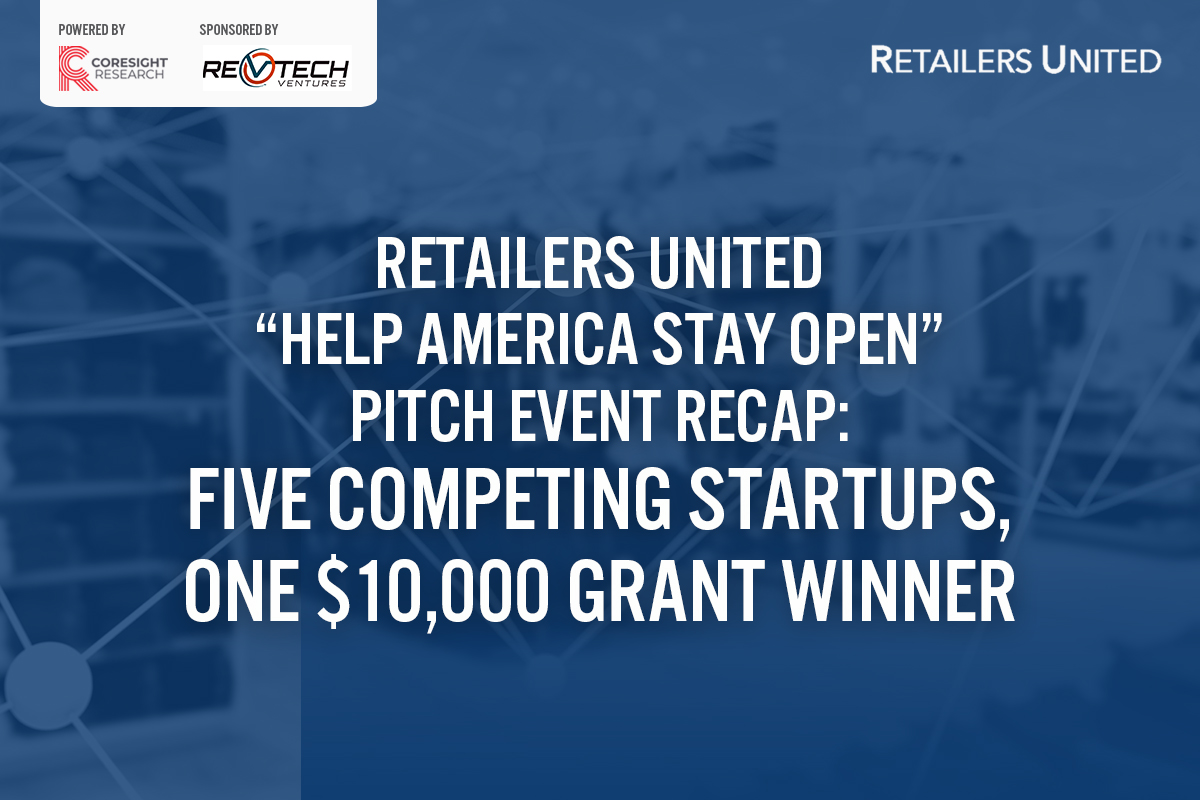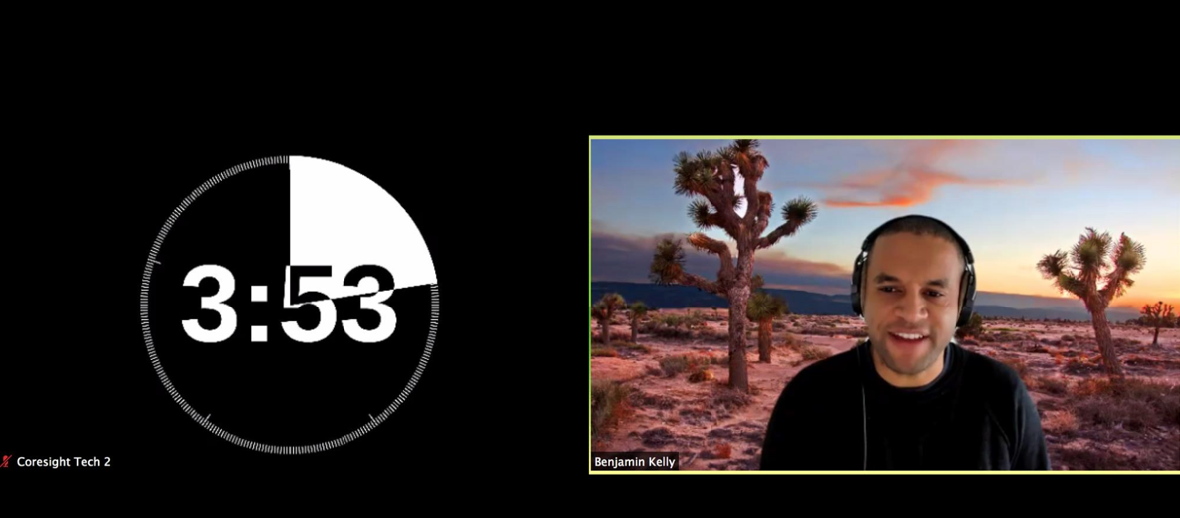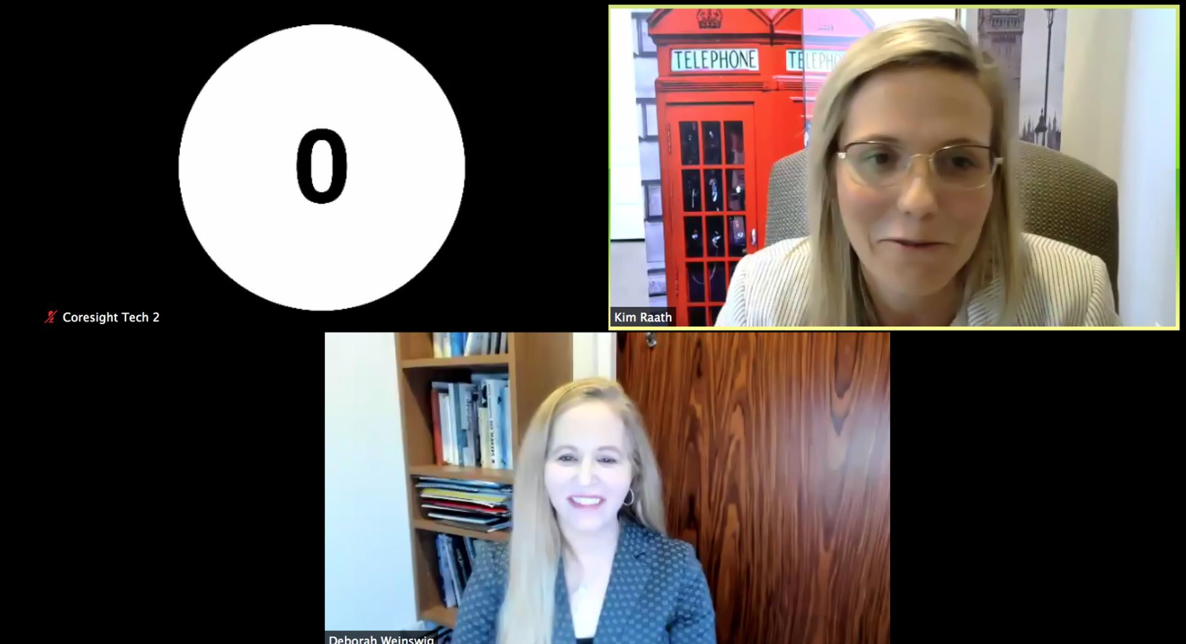
albert Chan
On December 8, 2020, Deborah Weinswig, Coresight Research CEO and Founder, emceed Retailers United’s second pitch event, co-sponsored by RevTech Ventures. Retailers United is a nonprofit organization dedicated to helping retailers adversely affected by the pandemic, such as through grants and mentorship. RevTech Ventures is a seed venture capital fund that invests in companies at the intersection of retail and technology.
In this report, we offer insights from the “Help America Stay Open” digital pitch event, providing highlights from the presentations of the five startups that competed for a $10,000 grant, as well as from the pitches of the three participating RevTech Ventures-backed companies.
Retailers United Pitch Event: Structure and Judges
Retailers United has already issued four major grants to brands and retailers impacted by the pandemic. Fashion designer Rubin Singer, the original Retailers United grant recipient, was featured on QVC shortly after receiving the Retailers United grant and mentorship. Tubesies and The Organic Candy Factory, both winners of the previous pitch competition, have since seen their brands gain increasing exposure: Tubesies, an adaptive toddler and infant apparel brand, was featured on “Good Morning America” following the Retailers United pitch competition; and The Organic Candy Factory, an organic candy producer, was acquired in November by Vertical Wellness.
As in the previous pitch event, during this “Help America Stay Open” event, each of the five startups had three minutes to present and two minutes for a Q&A session with the judges.
The event was judged by the following retail thought leaders:
- Padmaja Bommareddy—Walmart VP, Strategy and Business Development for Apparel
- Maxine Clark—Founder and Former CEO of Build-A-Bear
- Nick Graham—CEO of the Nick Graham Organization
- David Matthews—Managing Director, RevTech Ventures
- Mazdack Rassi—Co-Founder and Chief Brand Officer of MILK Beauty
Unlike the previous pitch competition, this event also included three presentations from slightly later-stage RevTech Ventures-backed startups. While the judges deliberated, these companies presented their businesses and pitched how their solutions could help the competing startups.
[caption id="attachment_120648" align="aligncenter" width="550"] Deborah Weinswig, Coresight Research CEO and Founder, introduces Retailers United’s second pitch competition
Deborah Weinswig, Coresight Research CEO and Founder, introduces Retailers United’s second pitch competitionSource: Coresight Research[/caption]
Five Startups: Presentation Highlights
Following her introduction of the event, Weinswig opened the floor to the startups to begin their presentations.
- ASTOURI: A stylish and digitally savvy women’s ready-to-wear apparel and accessories brand
- Metrical: An artificial intelligence (AI)-driven solution for e-commerce retailers to reduce leakage and cart abandonment
- Mighty Kind: A magazine that aims to inspire a global community of children who care, by celebrating world cultures and compassion
- Pop Bag: An affordable brand offering classic handbags and enabling women to create their own luxury
- Turn: A sustainability company helping consumers and businesses to reduce waste
We profiled these five startups in a separate report prior to the event. Below, we detail highlights from their presentations, in the order in which they presented.
ASTOURI
Christina Liedtke, Founder of ASTOURI, told the judges that the brand’s goal is to disrupt the multibillion-dollar travelwear market. Despite reduced travel this year as a result of the Covid-19 pandemic, Liedtke remains confident that the women’s travelwear market remains a largely untapped opportunity: Over 70% of women love where they live and travel to, she said, and ASTOURI’s goal is to help these travelers show off their community pride in well fitting, stylish garments. Liedtke explained that the average female traveler is a size 12 and wants to have more options for travelwear than an “I Love New York” T-shirt, for example. ASTOURI aims to provide women with American-made, creative travelwear options that can be difficult to find elsewhere.
Prior to the pandemic, 75% of ASTOURI’s sales came from trade shows and pop-up stores. The company has had to pivot to an online-focused approach, and 65% of its sales now come from digital channels. Liedtke believes that the brand’s flexibility and expansion give ASTOURI unlimited potential growth opportunities.
Liedtke detailed what the brand would do with the $10,000 grant: $3,000 would go to inventory; $3,000 would be allocated to help hire a salesperson; and $4,000 would help the brand streamline its social media offerings and online platform.
[caption id="attachment_120649" align="aligncenter" width="550"] Christina Liedtke, ASTOURI Founder, fields a question from Padmaja Bommareddy, VP Strategy and Business Development for Apparel at Walmart
Christina Liedtke, ASTOURI Founder, fields a question from Padmaja Bommareddy, VP Strategy and Business Development for Apparel at WalmartSource: Coresight Research[/caption]
Metrical
Metrical Founder Zabe Agha introduced his company, a solution for e-commerce retailers to improve conversion rates. Agha indicated that Metrical’s AI and machine learning (ML)-driven algorithms enable it to predict shopper behavior more accurately than traditional historical analysis methods. He outlined the comapany’s three main product offerings:
- Cart abandonment reduction—Metrical helps clients reduce abandonment rates by better understanding what leads consumers to leave carts and by streamlining the “buy flow” (path to purchase).
- Cart creator—The company enables e-commerce retailers to employ solutions that increase the number of carts that consumers can start.
- Smart microsurveys: Metrical’s solutions provide clients with the ability to conduct short surveys of consumers to better understand purchasing behaviors.
Agha noted that the company has worked with retailers large and small, including JCPenney, for which Metrical introduced a “bounceback” campaign that saw remarkable success. The program encouraged existing customers to return to the retailer’s website again, and it saw more than 70% of the target consumer base return to the online store within a five-week period. Furthermore, these customers generally spent more on their return visit than the retailer’s online average annual order value. Agha told the judges that Metrical would use the $10,000 grant to begin marketing more effectively, citing the company’s five-person staff as a limiting factor when it comes to reaching a wide audience with their advertising.
[caption id="attachment_120650" align="aligncenter" width="550"] Metrical Co-Founder Zabe Agha discusses the company’s AI driven e-commerce optimization solutions
Metrical Co-Founder Zabe Agha discusses the company’s AI driven e-commerce optimization solutionsSource: Coresight Research[/caption]
Mighty Kind
Nadine Fonseca, Mighty Kind Founder, developed the company based on personal passion. The daughter of an immigrant, Fonseca explained that she was often disheartened at how few educational materials and children’s magazines there were that enabled children and parents to have constructive conversations about diversity and identity. This realization was all the more stark for Fonseca when she moved from the diverse San Francisco Bay Area to a more homogeneous community. As a result, she told the judges, she founded Mighty Kind, a children’s magazine that aims to provide parents, teachers and children some of the tools they need to have scaffolded conversations about difference and acceptance.
According to Fonseca, Mighty Kind has more than 1,000 readers of its physical magazine across the US and eight other countries. During the Covid-19, Mighty Kind has also pivoted online, negotiating partnerships with digital publishers that now enable the magazine to reach hundreds of thousands of readers across multiple US states and other countries. While Fonseca did tout the value of Mighty Kind’s digital presence, she also cited the importance of physical materials in an era in which parents are increasingly looking for ways to encourage their children away from using screens.
With the $10,000 grant, Fonseca indicated that Mighty Kind would expand its reach and continue to develop its school curriculum, a new project the company has been working on to help teachers have constructive conversations around diversity in the classroom. The company also aims to integrate charitable giving into its business model, as Fonseca is adamant that cost should not prohibit children from accessing the materials that Mighty Kind provides.
[caption id="attachment_120651" align="aligncenter" width="550"] Nadine Fonseca, Founder of Mighty Kind, presents the diversity- and empathy-focused children’s magazine
Nadine Fonseca, Founder of Mighty Kind, presents the diversity- and empathy-focused children’s magazineSource: Coresight Research[/caption]
Pop Bag
Pop Bag was founded in 2018 by Marcia Dunn after she was inspired to introduce variety to the handbag market during a trip to Florence, Italy. Dunn told the judges that she had long lamented the lack of excitement in the world of women’s handbags: She believes that the average woman owns between 10 and 20 bags, but she also suspects that most have just one nice bag that they wear almost every day.
With Pop Bag, Dunn believes she has found a way to add variety to women’s handbag assortments at a reasonable price point—Pop Bag products are priced at $155–$345. Pop Bags are made from high-quality Italian leather (with faux leather options) and are available in 30 colors.
[caption id="attachment_120652" align="aligncenter" width="700"] Marcia Dunn, Pop Bag Co-Founder, fields questions from judges
Marcia Dunn, Pop Bag Co-Founder, fields questions from judgesSource: Coresight Research[/caption]
According to Dunn, Pop Bag’s real differentiator is the versatility and adaptability of its products. Each bag can be changed with the addition of panels, which customers can buy separately for around $60. Straps can also be changed out easily, and cost about $30 each. Dunn believes that this flexibility enables women to own a much wider assortment of fashion options at a fraction of the usual cost.
Dunn told the judges that with the grant money, Pop Bag would aim to advertise more on social media to draw consumers to their online platforms. Since the company launched, gross sales totaled $526,000, and less than 5% of those have been online sales. With the grant, Dunn indicated that Pop Bag could more effectively pivot to a digital, direct-to-consumer model.
Turn
Turn Founder Lauren Clarke opened her presentation with a worrisome statistic: If food waste were a country, it would be the third-largest producer of emissions in the world, behind only the US and China. Clarke told the judges that this was an avoidable issue, as food waste can in many cases be used as valuable compost, but is often instead disposed of less effectively. Turn is a food waste-recycling company based in the Dallas-Fort Worth metro area that currently offers both residential and business subscriptions for its waste disposal product. Clients can use Turn to responsibly dispose of their food waste and limit greenhouse gas emissions. Turn provides them with a quarterly report, cataloguing the impact of their operations on the environment.
Turn has partnered with major retailers, such as Whole Foods Market, as well as smaller restaurants, many of whom have been adversely affected by the pandemic. Clarke indicated that the company lost 35% of its revenues during the pandemic but has since rebounded by working with companies to begin offering Turn as an employee perk: Employees at AT&T’s Dallas headquarters now get access to Turn’s recycling services as a benefit. With the grant money, Clarke told the judges that the company would make down payments on two additional vehicles to help expand its coverage.
[caption id="attachment_120653" align="aligncenter" width="550"] Turn Founder Lauren Clarke answers a question from Build-A-Bear Founder Maxine Clark
Turn Founder Lauren Clarke answers a question from Build-A-Bear Founder Maxine ClarkSource: Coresight Research[/caption]
Three RevTech-Backed Companies: Presentation Highlights
As the judges deliberated, David Matthews, Managing Director of RevTech Ventures, introduced the venture capital fund, which has made 50 investments in the past year and has had five successful exits. The $10 million that company has so far invested in startups has generated a combined $250 million in capital formulation.
Three RevTech Ventures-backed startups were invited to the digital pitch event to outline their businesses and pitch how their services could be useful for the five competing startups.
- Recurate: A platform that enables brands and retailers to integrate resale products directly on their owned platforms through their Shopify-powered store.
- Singuli, Inc: A platform that leverages SKU (stock-keeping unit)-level data and forecasting to help retailers optimize inventory.
- Topl: A supply chain transparency tool that enables businesses to share evidence of their ethical and sustainable practices with stakeholders.
We profiled these three companies in a separate report prior to the event. Below, we present highlights from their pitches.
Recurate
Adam Siegel, Founder and CEO of Recurate, has a background in sustainable retailing and ethical production. He founded Recurate as a resale solutions provider that brands and retailers can use to integrate secondhand marketplaces directly onto their e-commerce sites.
Siegel told the pitch event audience that the fashion resale market is currently growing exponentially, driven by Gen Zers and millenials who love the cheap prices and sustainability of marketplaces such as Poshmark and The ReaReal. While Siegel applauded the growth of these resale platforms, he also saw it as an opportunity to help retailers capture some of those sales on their own platforms, thus driving consumer engagement and loyalty.
Recurate’s solution integrates seamlessly into Shopify, which Siegel believes most direct-to-consumer brands use, including ASTOURI and Pop Bag. Recurate enables consumers to post items for resale directly on the brand’s site, so shoppers can browse and buy used products alongside new products. The retailer can then set the amount of store credit or cash that sellers will get for their products, all without ever having to handle the inventory. Recurate has already handled hundreeds of listings and thousands of dollars in sales. Next year, the company is launching on the sites of many larger brands to further capitalize on the expanding apparel resale market.
[caption id="attachment_120654" align="aligncenter" width="550"] Adam Siegel, Recurate Founder and CEO, is introduced by RevTech Ventures Managing Director David Matthews
Adam Siegel, Recurate Founder and CEO, is introduced by RevTech Ventures Managing Director David MatthewsSource: Coresight Research[/caption]
Singuli, Inc
Singuli, presented by CEO and Co-Founder Benjamin Kelly, uses ML models to help retailers improve their inventory planning and demand forecasting. Kelly noted that trends can often be hard to forecast, but that poor planning can often cost retailers large sums of money. If retailers overbuy, they end up having to mark down products and often sell the product at less than it costs to make. If they buy too little, retailers risk leaving dollars on the table. Between these dual effects, Kelly estimates that poor inventory planning costs retailers hundreds of billions dollars each year.
Kelly explained that the traditional approach to inventory planning is to make decisions by looking at historical data; Singuli takes a more forward-looking approach. The company’s team is made up of scientists and engineers who have created a system that constantly monitors real-time data from the whole business, helping retailers and brands such as ASTOURI and Pop Bag to make more-informed decisions when inventory planning.
[caption id="attachment_120655" align="aligncenter" width="550"] Singuli CEO and Co-Founder Benjamin Kelly discusses the company’s ML-driven inventory management solutions
Singuli CEO and Co-Founder Benjamin Kelly discusses the company’s ML-driven inventory management solutionsSource: Coresight Research[/caption]
Topl
Topl Founder Kim Raath comes from a mining and agricultural background in South Africa, putting sustainable sourcing in both agriculture and jewelry at the front of her mind. Partly as a result, Raath founded Topl, which enables retailers and brands to track and provide proof of sustainable practices throughout their supply chain.
Raath cited greenwashing as a major issue in the fight for sustainability, and aims to use blockchain technology to verify sustainable practices through the entire supply chain. Topl’s API (application programming interface) integration and blockchain service enables clients to track and share the entire journey of their products. The technology also helps retailers to track the impacts that they are having according to the United Nation’s Sustainable Development Goals.
[caption id="attachment_120656" align="aligncenter" width="550"] Topl Founder Kim Raath presents the company’s sustainability solution
Topl Founder Kim Raath presents the company’s sustainability solutionSource: Coresight Research[/caption]
The Winners
Kay Unger, Chair Emerita at Parsons School of Design, who is on the executive board of Retailers United and attended the pitch event to present the awards, congratulated all the startups on their participation: Simply by making it to the finals, all of the startups were winners and would receive mentorship from the Retailers United team. She then announced the winner: Mighty Kind, presented by Founder Nadine Fonseca.
In a surprise move, Unger also revealed that Turn, presented by Founder Lauren Clarke, would receive a $2,500 grant. Unger explained that the Retailers United board will now convene with all the startups to provide advice on next steps of their business.